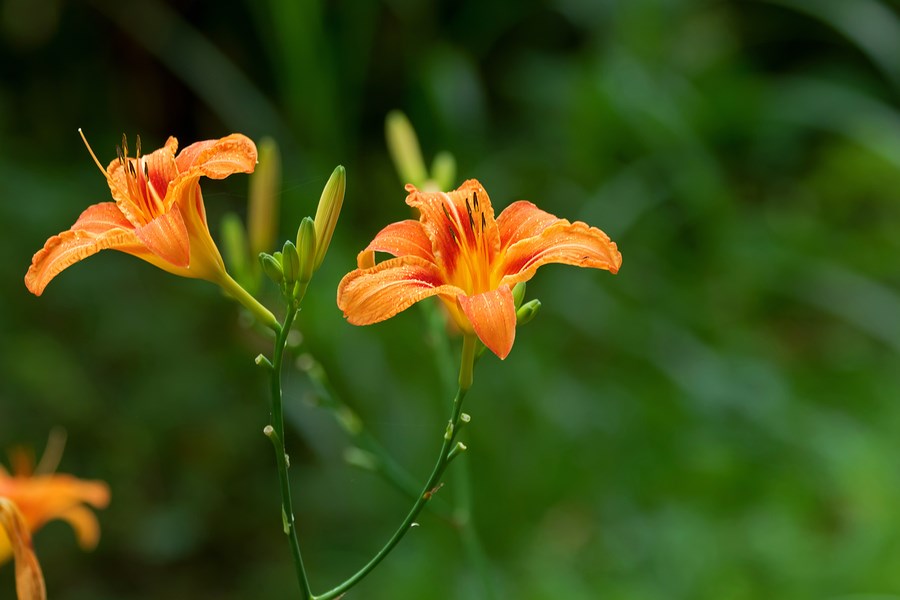An outstanding perennial for our area is the daylily, Hemerocallis cultivars. In spite of its name it is not a true lily.
True lilies, Lilium cultivars, have leaves around the stem up to the flowers, whereas the leaves and bare flower stalks of the daylily all grow individually from the base of the plant.
Daylilies are hardy, well-behaved plants, undemanding, and mostly disease and pest-free. They come in thousands of cultivars. Some even have evergreen foliage, but the evergreen varieties are not hardy for us.
I was told once that they were invasive, spreading by underground roots. After seeing this for myself and doing some research, I learned that the old fashioned daylilies do spread by roots, and there are quite a few in gardens in town. This daylily has very tall flower stalks bearing orange flowers with rather narrow petals.
The daylily cultivars on the market stay where planted and come in a variety of colours from white to yellow, salmon, orange, red, purple and maroon, with many bicolours. Petals are wide with edges that may be ruffled or smooth, and some even have a thin edge of contrasting colour. Double and spider flowers are also available.
There is a daylily suitable for any size of garden. Mature height given is for the plant in bloom, and ranges from 10 inches to three feet. The flower stalks rise above the foliage in most varieties. One of the most popular daylilies is Stella d’Oro – 12 inches tall, blooming early and again later in the season. There are a few other repeat blooming daylilies. Each daylily has its bloom season, with attractive foliage the rest of the time. By planting a variety of daylilies you can have some bloom all summer.
Daylilies will bloom in full sun, with fewer blooms in partial shade. They are not fussy about soil as long as it is not soggy, but it is a good idea to amend the soil with compost when planting. They require little attention and can be left undisturbed for years. Older plants that are getting crowded or loosing vigour can be divided and replanted. Mulching is beneficial for retaining moisture and modifying soil temperature in summer as well as providing winter protection.
This perennial is well-named as each flower on a daylily lasts only one day. However, there are so many flowers produced that this is hardly noticed. In fact, there are usually enough flowers that you may want to pick one or two to add the colourful petals to your salad— the flavour is slightly peppery.
Be sure it is a daylily flower you are eating and not a true lily, as some are poisonous.
Daylilies may be toxic for cats but not for dogs, whereas true lilies are toxic for both cats and dogs, but I have not heard of any pet poisonings.




